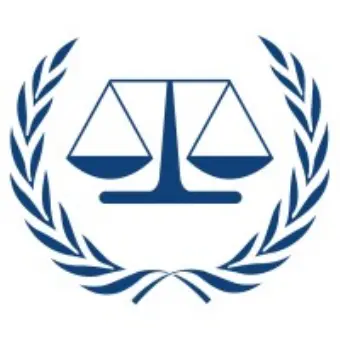Legal Adviser (P-3)

International Criminal Court
This job is no longer accepting applications
See open jobs at International Criminal Court.See open jobs similar to "Legal Adviser (P-3)" Greater Rotterdam – The Hague area.Career Opportunities: Legal Adviser (P-3) (24171)
24171| OTP
| Deadline for Applications: | 16/11/2025 (midnight The Hague time) |
| Organizational Unit: | Legal Advisory Section, Office of the Prosecutor |
| Duty Station: | The Hague - NL |
| Type of Appointment: | Established Post |
| Post Number: | E-4000 |
| Minimum Net Annual Salary: | €90,615.00 |
| Contract Duration: | For initial appointments, the Court offers a two-year appointment with the possibility of extension (six month probationary period). |
A roster of suitable candidates may be established for this post as a result of this selection process for fixed-term appointments against both established posts and positions funded by general temporary assistance (GTA).
Organisational Context
The Office of the Prosecutor (OTP) investigates and prosecutes genocide, crimes against humanity, war crimes and the crime of aggression committed by nationals of or an the territory of a State Party under the Court's jurisdiction on or after 1 July 2002.
The Legal Advisory Section (LAS) combines a commitment to legal excellence with a result-oriented and policy- friendly approach in delivering legal services. The LAS operates as a dynamic and multifaceted international law practice in anticipation of and in response to client requirements, in both operational and policy matters.
The LAS provides legal advice to the Prosecutor, the Deputy Prosecutors and other components of the OTP on issues related to the activities and administration of the OTP involving international and national law, including public, private, procedural, and administrative law. The LAS supports the performance of the OTP’s functions under the Court’s legal framework including in particular Rome Statute, Rules of Procedure and Evidence, Regulations of the Court, Regulations of the Office of the Prosecutor, Financial Regulations and Rules, Staff Rules and Regulations and other legal instruments governing the ICC. The Section provides a broad range of legal services including drafting, negotiating, advising and litigating.
The LAS is headed by the Senior Legal Adviser who reports to the Prosecutor, and together with the Prosecutor, the Deputy Prosecutors and other senior officials of the OTP, is a member of the OTP Management Team.
Duties and Responsibilities
Within this framework, and under the direct supervision of the Senior Legal Adviser, the incumbent will perform the following duties:
- Plans and conducts extensive research and analysis;
- Drafts complex legal documents including legal submissions, correspondence, memoranda, opinions and briefs;
- Provides advice to client sections and assists in providing advice to the Prosecutor, the Deputy Prosecutors and other senior officials of the OTP;
- Negotiates agreements with a variety of parties;
- Provides legal services in assigned area(s) of specialization;
- Performs other or additional duties as assigned by the Senior Legal Adviser.
The duties of the incumbent may involve any of the following matters:
- External relations: advises on public international law matters, including privileges and immunities; drafts, reviews and interprets treaties, contracts, agreements, MoUs and notes verbale; and advises on matters of international institutional law;
- Administrative issues: advises and prepares drafts in relation to compliance, regulatory and other administrative matters, including administrative issuances and procurement processes; advises on and drafts commercial contracts and agreements; and advises on matters of international administrative law; and
- Litigation: represents the OTP in internal and external dispute settlement proceedings of various nature and against a variety of parties, including disputes before the International Labour Organisation Administrative Tribunal, and arbitration and conciliation proceedings; advises on, drafts and reviews submissions, legal opinions, and correspondence and settlement agreements; advises on matters of liability and international administrative law.
Essential Qualifications
Education:
Advanced university degree in law with specialisation in international criminal law and/or (general) public international law, including international institutional law. A first level university degree in combination with two additional years of qualifying experience is accepted in lieu of the advanced university degree.
Bar admission or equivalent (e.g. solicitor), with substantial post-qualification experience, would be considered an asset.
Experience:
A minimum of five years (seven years with a first level university degree) of progressively responsible professional experience in a legal environment relevant to the work of the Court, and to the aforementioned duties and responsibilities.
Knowledge, Skills and Abilities:
- Thorough theoretical and practical knowledge of the law governing the Court or other international organisations, with extensive expertise/experience in international criminal law and/or (general) public international law, including international institutional law.
- Strongly developed legal skills, including excellent drafting (concise, well-reasoned, persuasive, and legally and factually accurate), and research and advisory skills.
- Highly developed ability to organise work so as to ensure timeliness, quality, uniformity and consistency, with a thorough knowledge of the law and understanding of the various interests at stake.
- Strong analytical skills, and effective communication, negotiation, diplomatic and advocacy skills, combined with interpersonal skills and political sensitivity.
- Theoretical and practical knowledge of the legal, political, administrative, financial and procedural framework of the Court in both operational and policy matters.
- Knowledge of relevant (electronic) document and information management systems.
- Possesses sound judgment; ability to drive innovation and eliminate barriers to effective and efficient work practices.
- Proven track record of good customer service by providing policy-friendly advice and support services within an international organization and a complex multi-cultural environment.
- Excellent decision-making skills, with the ability to balance interests and translate the general strategic plans of senior management (including Senior Legal Adviser and Legal Adviser) into concrete strategies.
- Professionalism and integrity.
Knowledge of languages:
Proficiency in either of the working languages of the Court (English and French) is required and a working knowledge of the other is desirable. Knowledge of another official language of the Court (Arabic, Chinese, Russian, Spanish) would be considered an asset.
ICC Leadership Competencies
Purpose
Collaboration
People
Results
ICC Core Competencies
Dedication to the mission and values
Professionalism
Teamwork
Learning and developing
Handling uncertain situations
Interaction
Realising objectives
Learn more about ICC leadership and core competencies.
General Information
Candidates appointed to posts at a P-5 grade or in the Director category are subject to a maximum aggregate length of service of seven years. This is pursuant to a decision of the Assembly of States Parties (ASP Resolution ICC-ASP/23/Res.2 - ICC-ASP-23-Res.2-ENG) to implement a tenure policy at the Court as of 1 January 2025.
- The selected candidate will be subject to a Personnel Security Clearance (PSC) process in accordance with ICC policy. The PSC process will include but will not be limited to, verification of the information provided in the personal history form and a criminal record check.
- Applicants may check the status of vacancies on ICC E-Recruitment web-site.
- Post to be filled by a national of a State Party to the ICC Statute, or of a State which has signed and is engaged in the ratification process or which is engaged in the accession process. This is pursuant to a decision of the Assembly of States Parties (ASP Resolution ICC-ASP/23/Res.3 - ICC-ASP-23-Res.3-ENG) to introduce a moratorium on the recruitment by the ICC of staff of non-States Parties’ nationality.
- In accordance with the Rome Statute, the ICC aims to achieve fair representation of women and men for all positions, representation of the principal legal systems of the world for legal positions, and equitable geographical representation for positions in the professional category.
- Applications from female candidates are particularly encouraged.
- The International Criminal Court applies the Inter-Organization Mobility Accord and can support secondment of staff from organizations of the United Nations Common System.


